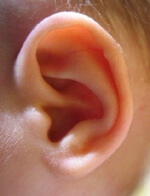Schedule a Consultation
216-621-3000Schedule a Consultation
216-621-3000
Children with cerebral palsy have an increased risk of hearing loss—approximately 15 to 20% have some level of impairment. Particularly for children with cerebral palsy, hearing loss can lead to problems with language and social development. Early identification and treatment of hearing loss is of paramount importance.
Parents, teachers and pediatricians should be on the look-out for signs of hearing loss. Symptoms may include:
Doctors and audiologists can perform tests to determine the extent of hearing loss. Testing may include behavioral audiograms, visual re-enforced audiometry, and conditioned play audiometry. Hearing tests can be more difficult with children who have cerebral palsy because they may be limited in their ability to control their bodies. However, good audiologists can find ways around these limitations, usually with the help of parents or teachers.
There are two general types of hearing loss—sensorineural and conductive. Sensorineural hearing loss affects the nerve fibers or the cells in the child’s inner ear, and can be caused by lesions in the brain from oxygen and blood deprivation while in the womb. Children with this type of hearing loss have a particular difficulty with high-pitched sounds and faint noises. They may also suffer from dizziness and ringing in the ears. Conductive hearing loss affects the outer and middle ear—often by fluid, earwax buildup, or congenital abnormalities of the ear canal.
Treatment depends on the cause. With an earlier diagnosis, it is more likely that treatment will be effective and will prevent further language development problems. Surgery can be used to correct many cases of conductive hearing loss. Otherwise, hearing aids may be useful. Sensorineural loss can be more difficult to repair. Surgery is only about 50% effective. If surgery is not an option, most children with this type of loss are treated with hearing aids or cochlear implants.
Other medical conditions are associated with hearing loss, for example:
If your child develops difficulty hearing early in life, contact our birth injury lawyers at (440) 252-4399, or send us a message through our website. We can help you to understand whether negligence during the pregnancy or delivery caused your child’s hearing difficulties.

